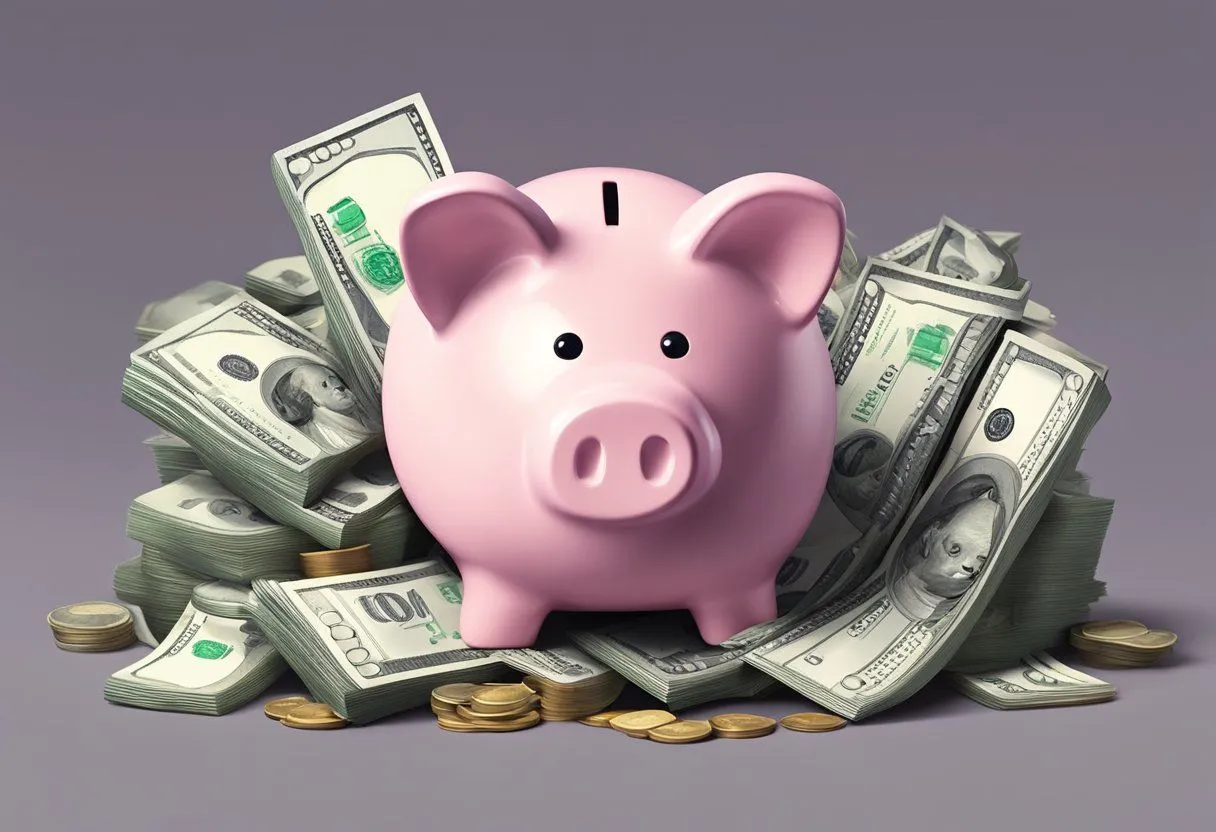Emergency Funds: Your Safety Net in Times of Crisis
Emergency funds are an essential part of personal finance planning. These funds are a safety net that can help individuals and families weather unexpected financial crises. Whether it’s a sudden job loss, a medical emergency, or a natural disaster, having an emergency fund can provide peace of mind and financial stability during difficult times.

Creating an emergency fund is a straightforward process that involves setting aside money in a separate account. The fund should ideally cover three to six months’ worth of living expenses. This includes rent or mortgage payments, utilities, groceries, transportation, and any other necessary expenses. While it may take time to build up an emergency fund, it is a critical step in achieving financial security and preparedness.
Having an emergency fund is especially important in today’s uncertain economic climate. With many industries experiencing significant disruptions and job losses due to the COVID-19 pandemic, having a safety net can help individuals and families navigate these challenging times. By prioritizing emergency fund savings, individuals can protect themselves and their loved ones from financial hardship in the event of an unexpected crisis.
Understanding Emergency Funds

Emergency funds are an essential part of any financial plan. They are a safety net that can help you weather unexpected expenses or income losses. An emergency fund is a sum of money that you set aside for emergencies only. It is meant to cover unexpected expenses that cannot be covered by your regular income or savings.
The purpose of an emergency fund is to provide you with financial security in times of crisis. This can include anything from a sudden job loss to a medical emergency or a major home repair. Having an emergency fund can help you avoid going into debt or having to rely on credit cards or loans to cover unexpected expenses.
The amount of money you need in your emergency fund will depend on your individual circumstances. As a general rule, financial experts recommend having three to six months’ worth of living expenses saved. This means that if you were to lose your job or experience a significant income loss, you would have enough money to cover your basic living expenses for three to six months.
When setting up an emergency fund, it’s important to keep the money in a separate account that is easily accessible but not too easy to access. This can be a savings account or a money market account that earns interest but does not have penalties for early withdrawals.
In summary, an emergency fund is a safety net that can help you weather unexpected expenses or income losses. It is a sum of money that you set aside for emergencies only, and it should be easily accessible but not too easy to access. The amount of money you need in your emergency fund will depend on your individual circumstances, but financial experts recommend having three to six months’ worth of living expenses saved.
Reasons for Having an Emergency Fund

An emergency fund is a crucial component of financial planning. It is a safety net that can help you weather unexpected financial storms. Here are some reasons why having an emergency fund is essential:
Unforeseen Expenses
Life is unpredictable, and unforeseen expenses can arise at any time. These expenses could be anything from a car repair to a broken appliance or a sudden home repair. Having an emergency fund can help cover these expenses without having to rely on credit cards or loans.
Job Loss
Losing a job can be a stressful and challenging experience, especially if you don’t have a financial cushion. Having an emergency fund can help you cover your expenses while you look for a new job. It can also help you avoid taking on debt to make ends meet.
Medical Emergencies
Medical emergencies can be costly, even if you have health insurance. An emergency fund can help cover the costs of deductibles, co-pays, and other medical expenses that may not be covered by insurance.
In summary, having an emergency fund is essential for anyone who wants to be financially prepared for unexpected events. It can help you avoid debt, reduce stress, and provide peace of mind.
How to Build an Emergency Fund

Building an emergency fund is essential to prepare for unexpected expenses or job loss. Here are some steps to follow to build an emergency fund:
Setting a Goal
The first step in building an emergency fund is to set a goal. Financial experts recommend having at least three to six months’ worth of living expenses saved up. However, the exact amount will depend on individual circumstances such as job security, health, and family situation. It is important to be realistic and start with a small goal and gradually increase it over time.
Automating Savings
One of the easiest ways to save money is to automate it. Set up automatic transfers from your checking account to your emergency fund account each month. This will ensure that you are consistently saving money without even thinking about it.
Choosing the Right Account
When building an emergency fund, it is important to choose the right account. Look for an account that is easily accessible, has no withdrawal penalties, and earns interest. A high-yield savings account or a money market account are good options to consider. Avoid investing your emergency fund in stocks or other risky assets.
By following these steps, you can build an emergency fund that will provide a safety net in times of crisis. Remember to be patient and consistent in your savings efforts.
Maintaining and Using Your Emergency Fund

After creating an emergency fund, it is important to maintain it and use it effectively when necessary. Here are some tips on how to do so:
Replenishing After Use
If you have to dip into your emergency fund, it is crucial to replenish it as soon as possible. Determine how much you withdrew and make a plan to put that amount back into the fund within a reasonable timeframe. This may involve cutting back on unnecessary expenses or finding ways to increase your income.
When to Use Emergency Funds
Emergency funds should only be used for true emergencies, such as unexpected medical expenses or job loss. It is important to establish clear guidelines for what constitutes an emergency and to stick to them. Using the fund for non-emergencies can deplete it quickly and leave you vulnerable in a true crisis.
When deciding whether to use your emergency fund, consider the severity of the situation and the impact it will have on your financial stability. If the situation can be resolved without using the fund, it may be best to do so.
In summary, maintaining and using your emergency fund requires discipline and careful consideration. By replenishing the fund after use and using it only for true emergencies, you can ensure that it will be there to provide a safety net in times of crisis.



